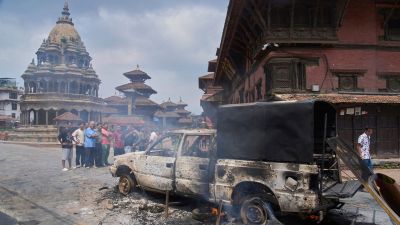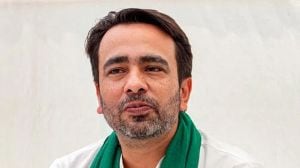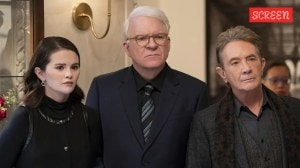Cops caught on wrong foot as Afroz wants to step back
In another blow to the Mumbai police’s case against alleged international terrorist Mohammed Afroz, the man accused of being an Al Qaed...

In another blow to the Mumbai police’s case against alleged international terrorist Mohammed Afroz, the man accused of being an Al Qaeda member filed an application to retract his confession at the Registrar’s office on Tuesday. The application will be heard by Maharashtra Control of Organised Crime Act (MCOCA) judge A.P. Bhangale on Friday before the court closes for vacation.
Afroz had filed the application on Friday last in the court of V.P. Tawre, where the in-camera confession had been recorded on December 18. However, the magistrate directed them to the special court where the case is being heard.
The application says Afroz was forced to make the confession in which he is supposed to have mentioned a connection with Al Qaeda and a conspiracy to blow up the UK House of Commons. He has said in the application that not only was he coerced into making the confession, he was also threatened that his brother would be killed in a fake encounter if he did not do so.
Further, he has stated that the police told him they would arrest his entire family and charge them under the MCOCA, 1999, if he did not do what he was asked. He was also warned not to engage a lawyer, he has said, offering explanations for having made the confession.
Afroz had offered to give the ‘voluntary’ confession on December 11 last year. On December 14, he was brought to the 3rd Court in the Metropolitan Magistrate’s Court, where the additional chief metropolitan magistrate had given him four days to reconsider the decision. On December 18, he gave his in-camera confession, the details of which are still not known. The Mumbai police relied heavily on the confession, the main evidence they have against Afroz.
The police had first applied and then dropped charges under the POTA. They are considering the possibility of the MCOCA. However, Special Public Prosecutor Ujjwal Nikam had told the court they would not apply the MCOCA until they had enough evidence. With the retraction of the confession, the police will have to now not only prove their charges, but also that the confession was voluntary, with corroborative evidence.
Photos



- 01
- 02
- 03
- 04
- 05



























